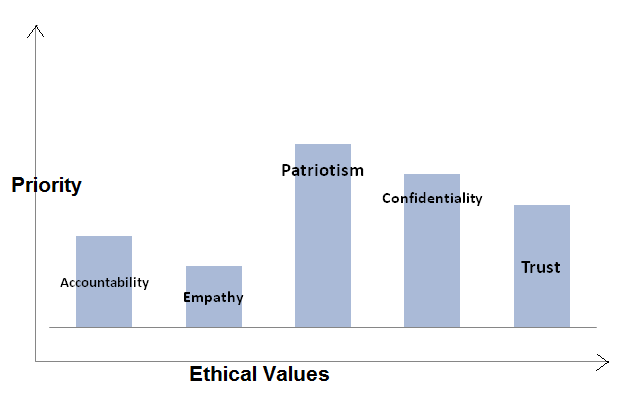Case Studies
Case Study - 24: National Security and Honey Trapping
- 09 Nov 2019
- 5 min read
You are a senior officer at an intelligence agency working for the internal security of the nation. You find out that a junior officer has been a victim of honey trapping through social media. In all of this, his phone was hacked and confidential files were leaked.
The entire department has come together and wants you to take strict action against that officer for his behavior. That junior officer is highly skilled and a valuable asset for the organisation. He is also very close to you as you have mentored him throughout and he also respects you a lot. Moreover, any action against him might attract media attention and bring a bad repute to the organisation at large.
(A) What are the ethical issues involved and the options available to you in such a situation?
(B) Also, suggest a course of action you would like to follow.
Solution
|
Facts of the case |
Stakeholders involved |
|
|
Ethical issues involved
- Human emotions: Officers, despite being trained to adhere to confidentiality norms, are tricked by spies for gaining sensitive information. This shows the vulnerability of human emotions which can be a risk to national security.
- Breach of trust: Such incidents erode people’s trust on intelligence agencies for upholding national security.
- Empathy towards colleagues: Close personal relations with the junior officer and his meritocracy might hinder taking strict action against him.
- Media scrutiny: Risk of defamation of officers before proper investigation.
Options available
| Options | Merits | Demerits | |
|
1. |
Taking strict action against the junior officer. |
|
|
|
2. |
Giving warning without any strict punishment. |
|
|
Option (1) seems to be the suitable choice as national security and professional ethics precede personal relations and empathy with the junior officer.
Course of action
- Following Standard Operating Procedures (SOP) and forming an investigation team for fact finding. Estimating the impact of the information leak should be the utmost priority.
- Temporarily suspending the junior officer and taking into custody all his digital media access.
- Reporting to higher authorities so that suitable action can be initiated at an appropriate level. Taking help from cyber security expert team to identify any other similar cases.
- Addressing media so as to handle the case with integrity and professional ethics considering the sensitivity of the issue.
- Taking long term measures like organizing training camps regarding honey trapping and cyber security for officers posted at high risk areas.
Conclusion
- As per Hindu mythology, Shri Krishna advised Arjuna that one should not escape his ‘dharma’. Arjuna’s duty is to be a warrior and to do what is right and just, even if it means fighting with his own brothers.
- Similarly, the duty of the senior officer is to take the right decision even if it means punishing the most talented mentee. National security and people’s trust in the organization should be the foremost priority of any officer.







